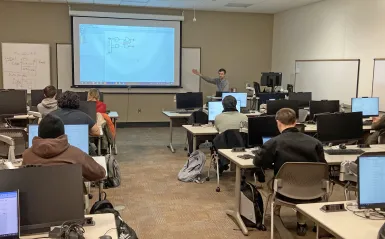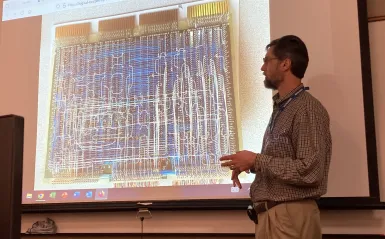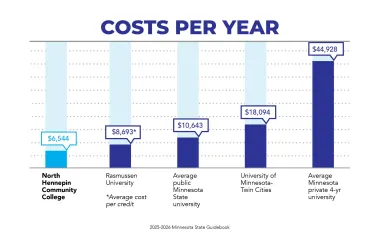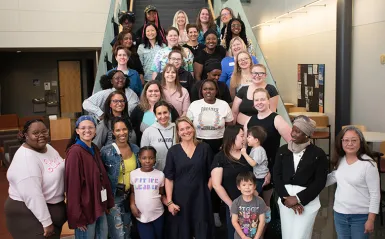Apply for Free
Use promo code SP26 to apply for free.
Transfer Options
NHCC's Computer Science AS Degree transfers seamlessly to many bachelor's degree programs at Minnesota State universities, and there are many transfer options for private colleges. If you plan on transferring to a bachelor's program, be sure to meet with your academic advisor in your first semester at NHCC.
Minnesota State Transfer
The Computer Science Transfer Pathway AS will transfer to any of the following Minnesota State universities:
- Bemidji State University
- Metropolitan State University
- Minnesota State University Mankato
- Minnesota State University Moorhead
- Southwest Minnesota State University
- St. Cloud State University
- Winona State University
Private College Transfer
The Computer Science Transfer Pathway AS will transfer to Concordia University, St. Paul.
Be sure to meet with your academic advisor if you are considering transferring.
Computer Science Classes at NHCC
Students in the Computer Science Transfer Pathway benefit from small class sizes, and apply what they learn in collaborative, real-world projects, and individual work.
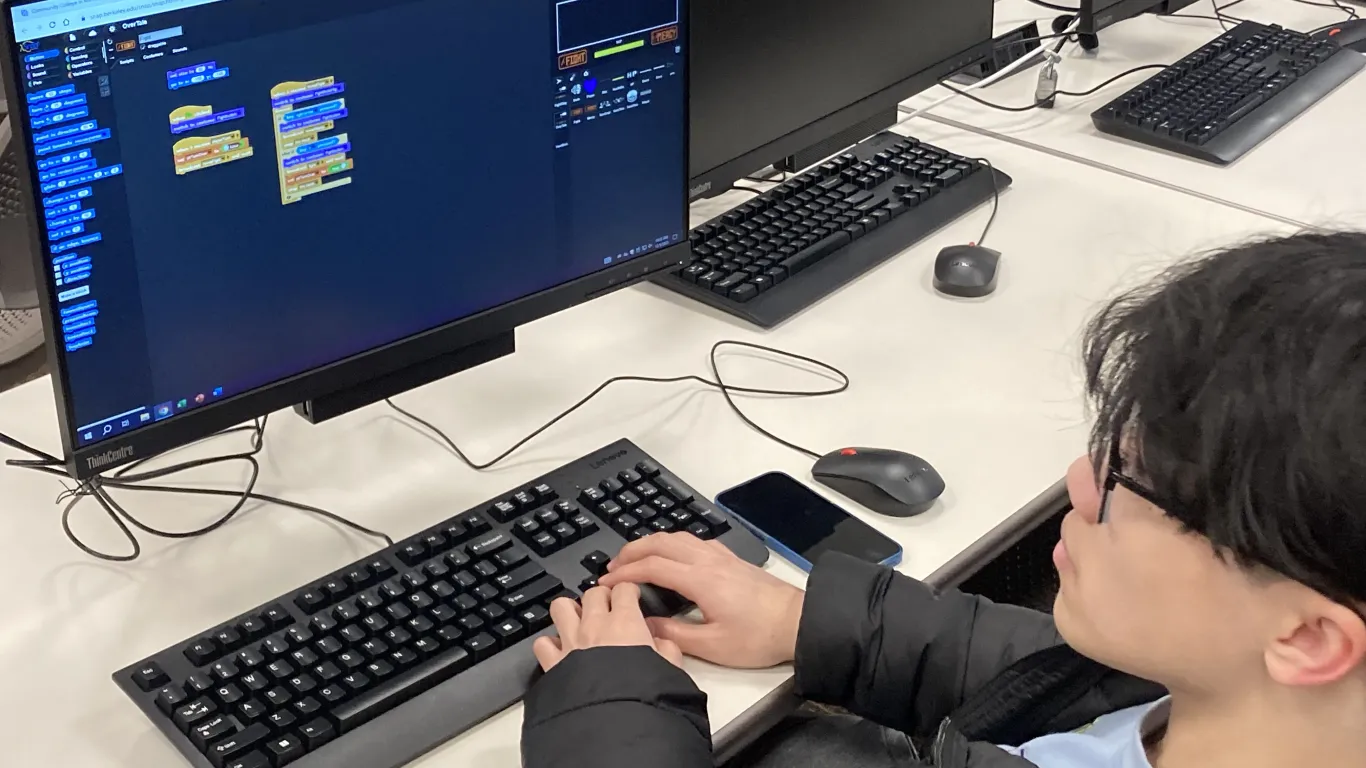
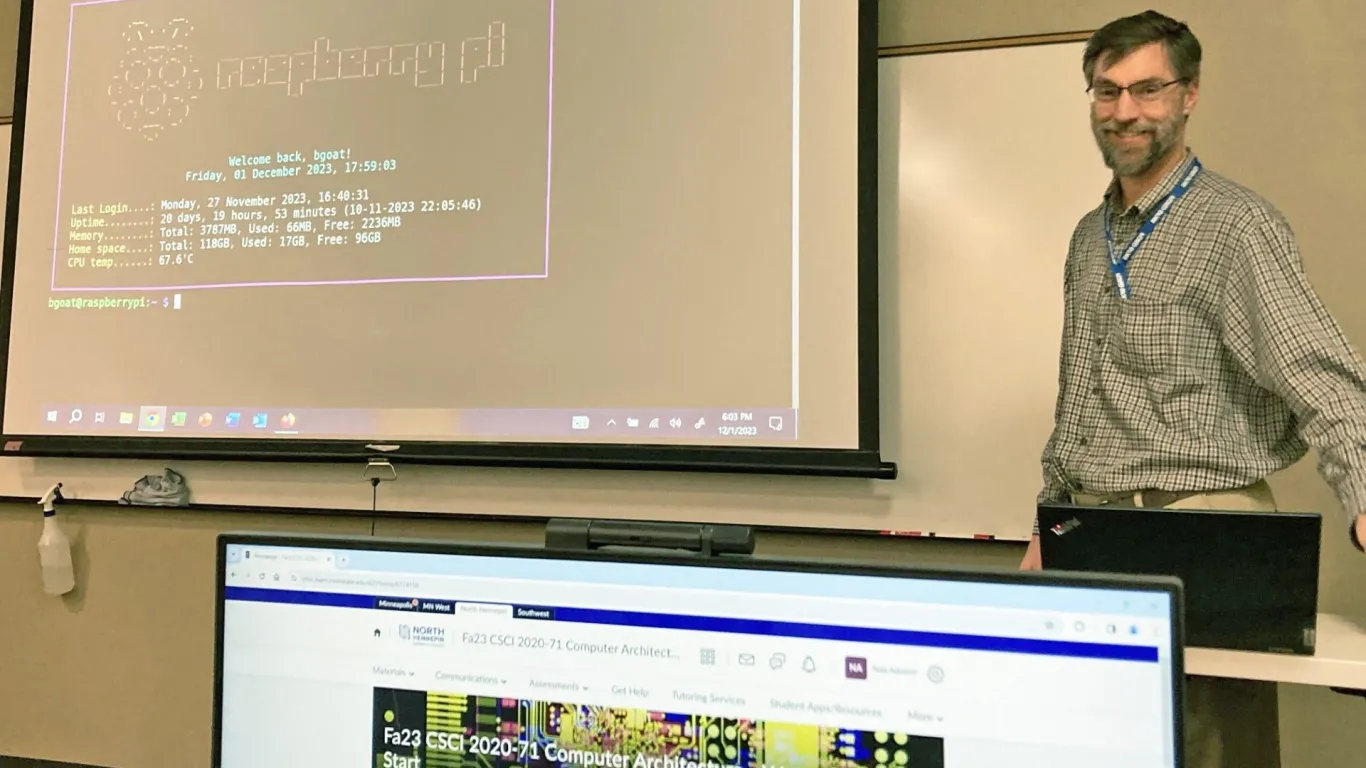

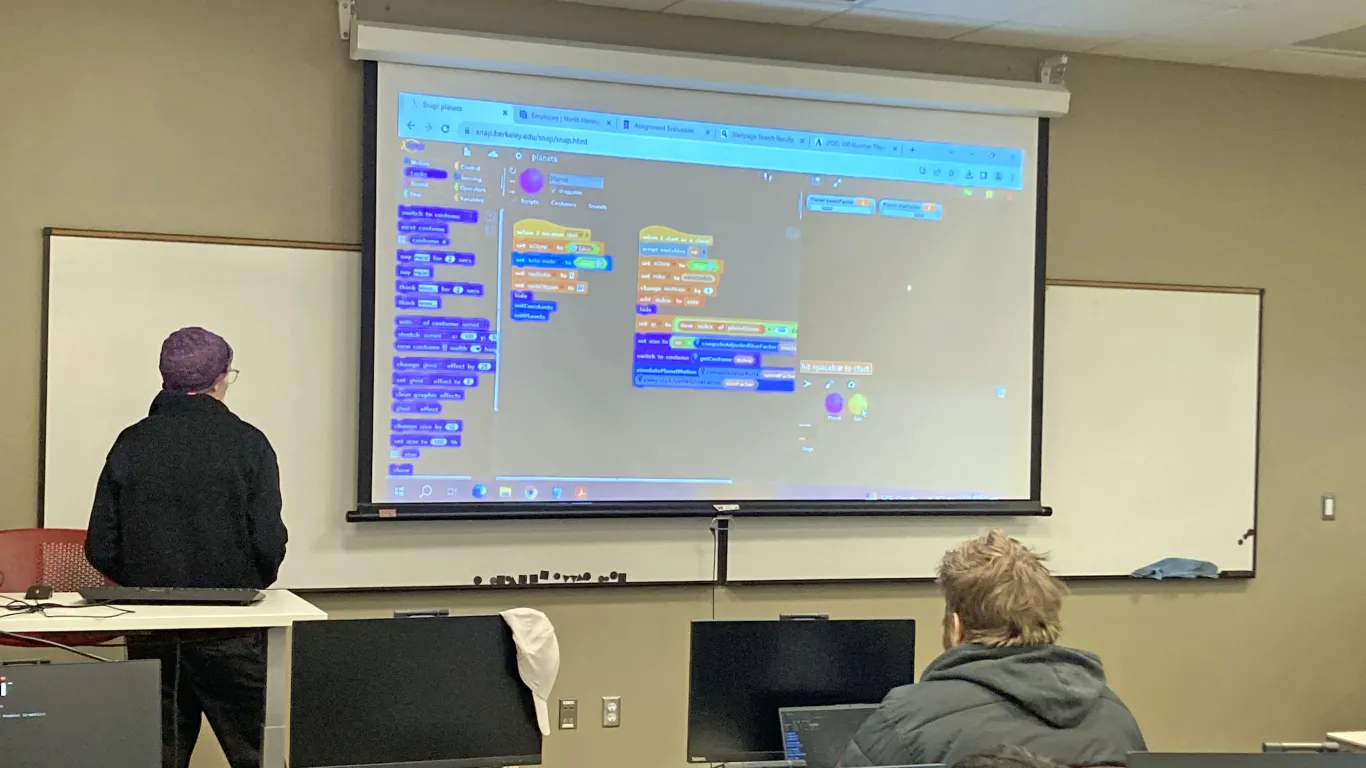
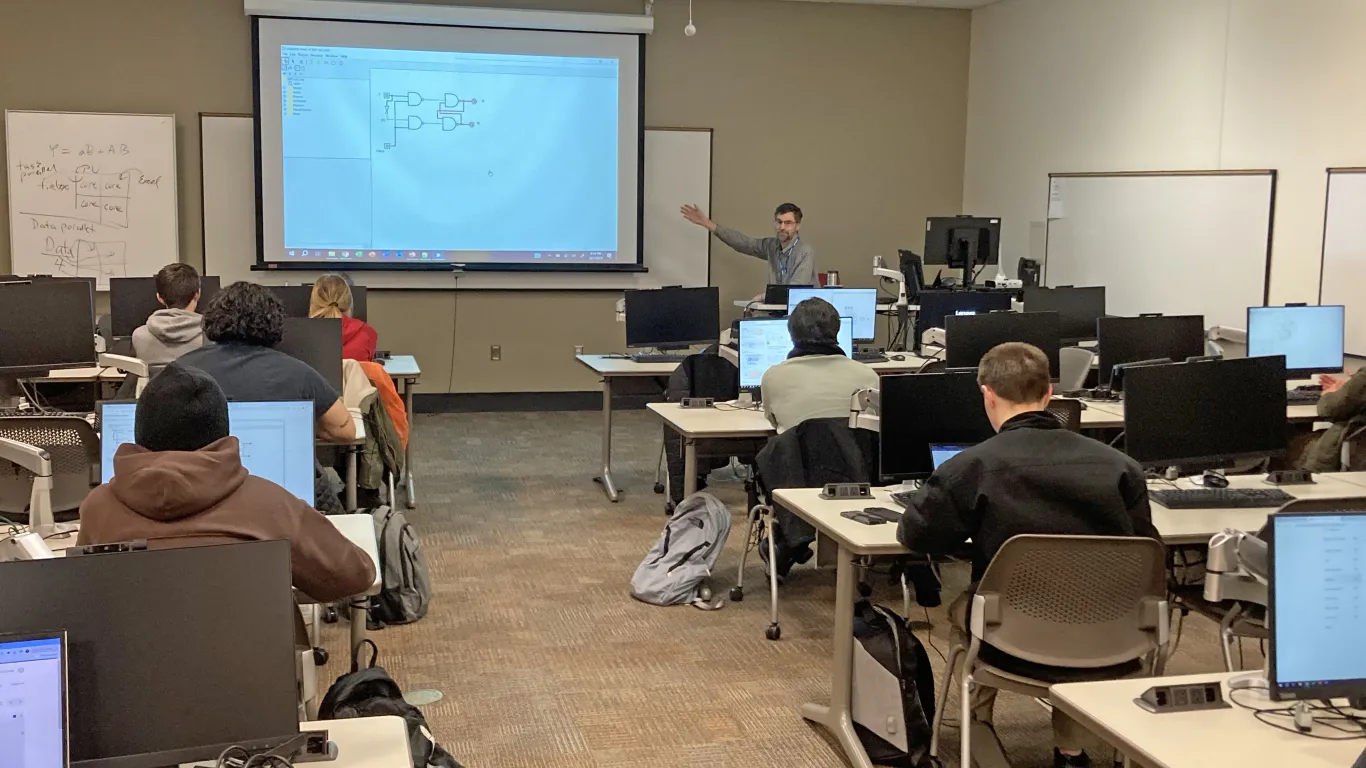
Tips For Computer Science Students From Computer Science Students
Nala Adotevi, a Computer Science student at NHCC, collaborates with peers in a concise blog post, offering essential tips for becoming a successful Computer Science student. Read Post.
What can you do with a Computer Science Degree?
Curious what you can do with a Computer Science Associate’s Degree?
NHCC offers hands-on learning, affordable tuition, and a clear path to tech careers or a four-year university. Read Post.
Meet Diego Gonzalez, a Computer Science Student at NHCC
Diego Gonzalez shares key insights on what it means to be a student in Computer Science at NHCC. Read Post.
Paying For College
NHCC's tuition is among the most affordable in Minnesota.
Financial Aid
- Scholarships are money you don't have to repay
- Grants are money you don't have to repay
Free College Tuition
The North Star Promise scholarship program provides free college tuition to eligible students. Find out if you might be eligible.
Earn a $2,500 Scholarship!
In addition to NHCC scholarships, the college will be awarding $2,500 Workforce Development Scholarships that encourage and reward students pursuing high-demand occupations. Computer Science is a high-demand field and Computer Science students are eligible to apply for a $2,500 Workforce Development Scholarship.
Program Roadmaps
Program roadmaps provide students with a guide to understand the recommended course sequence to complete their degree.
Get Started
If you're ready to get started, apply to NHCC. If you'd like to learn more, you can visit campus or request information.
